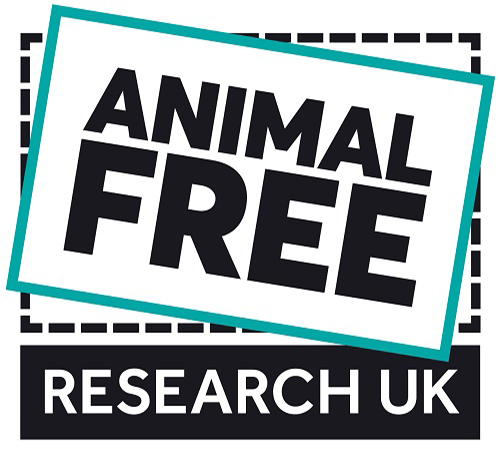
Animal Free Research UK
27 Old Gloucester Street
London
WC1N 3AX
http://www.animalfreeresearchuk.org
+44 (0) 20 8054 9700
hello@animalfreeresearchuk.org
About
Animal Free Research UK is the UK’s leading non-animal medical research charity.
We fund and promote the development of techniques and procedures to replace the use of animals in biomedical research. Animal Free Research UK is the new name for the Dr Hadwen Trust (DHT).
To achieve our aim, Animal Free Research UK (AFR UK) supports and assists scientists to implement existing techniques and develop new ones which are more human-relevant and will replace animal experiments. We award grants to scientists in universities, hospitals and research organisations following a rigorous and independent peer-reviewed selection procedure. Only those projects with the highest scientific calibre and the best potential for the replacement of animals will be awarded funding.
Funded solely by charitable donations, AFR UK has awarded grants to over 200 research projects since 1971 in diverse areas of medical research including cancer, Alzheimer’s disease, asthma, diabetes, kidney, heart and liver disease, to name only a few. To date, we continue to be the UK’s leading charity provider of grants solely dedicated to animal replacement research in biomedical research.
The Trustees of the charity, founded in 1970, had two enduring goals: to play a leading role in funding non-animal replacement research, and to advance and develop widespread support for this endeavour – always with the vision of making a major and practical contribution to advance medical science without harm to animals.
Today, AFR UK is still centred on these founding principles and we continue to demonstrate that cutting-edge research methodologies have led to significant advances and innovations in pursuit of more human-relevant approaches – without the use of animals.
Research Interests
Research Papers
Papers published since 2015, as a result of AFR UK-funded research (click on the doi number to see the full paper):
- Moczko E, Mirkes EM, Cáceres C, Gorban AN, Piletsky S. Fluorescence-based assay as a new screening tool for toxic chemicals. Scientific Reports. 2016;6: 33922. doi:10.1038/srep33922
- McGuire C, Boundouki G, Hockley JRF, Reed D, Cibert-Goton V, Peiris M, et al. Ex vivo study of human visceral nociceptors. Gut. 2016; gutjnl-2016-311629. doi:10.1136/gutjnl-2016-311629
- Gascoyne L, Furlong PL, Hillebrand A, Worthen SF, Witton C. Localising the auditory N1m with event-related beamformers: localisation accuracy following bilateral and unilateral stimulation. Scientific Reports. 2016;6: 31052. doi:10.1038/srep31052
- Hanemann CO, Blakeley JO, Nunes FP, Robertson K, Stemmer-Rachamimov A, Mautner V, et al. Current status and recommendations for biomarkers and biobanking in neurofibromatosis. Neurology. 2016;87: S40–S48. doi:10.1212/WNL.0000000000002932
- Jeffery N, Harries LW. Beta cell differentiation status in type 2 diabetes. Diabetes Obes Metab. 2016; n/a-n/a. doi:10.1111/dom.12778
- Das S, Singh G, Majid M, Sherman MB, Mukhopadhyay S, Wright CS, et al. Syndesome Therapeutics for Enhancing Diabetic Wound Healing. Adv Healthcare Mater. 2016; n/a-n/a. doi:10.1002/adhm.201600285
- Monteforte AJ, Lam B, Das S, Mukhopadhyay S, Wright CS, Martin PE, et al. Glypican-1 nanoliposomes for potentiating growth factor activity in therapeutic angiogenesis. Biomaterials. 2016;94: 45–56. doi:10.1016/j.biomaterials.2016.03.048
- Roberts GC, Morris PG, Moss MA, Maltby SL, Palmer CA, Nash CE, et al. An Evaluation of Matrix-Containing and Humanised Matrix-Free 3-Dimensional Cell Culture Systems for Studying Breast Cancer. PLOS ONE. 2016;11: e0157004. doi:10.1371/journal.pone.0157004
- Frej AD, Clark J, Roy CIL, Lilla S, Thomason PA, Otto GP, et al. The Inositol-3-Phosphate Synthase Biosynthetic Enzyme Has Distinct Catalytic and Metabolic Roles. Mol Cell Biol. 2016;36: 1464–1479. doi:10.1128/MCB.00039-16
- Jones RSG, da Silva AB, Whittaker RG, Woodhall GL, Cunningham MO. Human brain slices for epilepsy research: Pitfalls, solutions and future challenges. Journal of Neuroscience Methods. 2016;260: 221–232. doi:10.1016/j.jneumeth.2015.09.021
- Liddle EB, Price D, Palaniyappan L, Brookes MJ, Robson SE, Hall EL, et al. Abnormal salience signaling in schizophrenia: The role of integrative beta oscillations. Hum Brain Mapp. 2016; n/a-n/a. doi:10.1002/hbm.23107
- Winkler AM, Webster MA, Brooks JC, Tracey I, Smith SM, Nichols TE. Non-parametric combination and related permutation tests for neuroimaging. Hum Brain Mapp. 2016; n/a-n/a. doi:10.1002/hbm.23115
- Jassam SA, Maherally Z, Smith JR, Ashkan K, Roncaroli F, Fillmore HL, et al. TNF-α enhancement of CD62E mediates adhesion of non–small cell lung cancer cells to brain endothelium via CD15 in lung-brain metastasis. Neuro Oncol. 2015; nov248. doi:10.1093/neuonc/nov248
- Robson SE, Brookes MJ, Hall EL, Palaniyappan L, Kumar J, Skelton M, et al. Abnormal visuomotor processing in schizophrenia. NeuroImage: Clinical. 2015; doi:10.1016/j.nicl.2015.08.005
- Lane AR, Ball K, Ellison A. Dissociating the neural mechanisms of distance and spatial reference frames. Neuropsychologia. 2015;74: 42–49. doi:10.1016/j.neuropsychologia.2014.12.019
- James S, Fox J, Afsari F, Lee J, Clough S, Knight C, et al. Multiparameter Analysis of Human Bone Marrow Stromal Cells Identifies Distinct Immunomodulatory and Differentiation-Competent Subtypes. Stem Cell Reports. 2015;4: 1004–1015. doi:10.1016/j.stemcr.2015.05.005
- Di Lorenzo G, Daverio A, Ferrentino F, Santarnecchi E, Ciabattini F, Monaco L, et al. Altered resting-state EEG source functional connectivity in schizophrenia: the effect of illness duration. Front Hum Neurosci. 2015;9: 234. doi:10.3389/fnhum.2015.00234
- Brookes MJ, Hall EL, Robson SE, Price D, Palaniyappan L, Liddle EB, et al. Complexity Measures in Magnetoencephalography: Measuring “Disorder” in Schizophrenia. PLoS ONE. 2015;10: e0120991. doi:10.1371/journal.pone.0120991
AFR UK Conferences
Animal Replacement Science 2016: Advances, Awareness, Applications